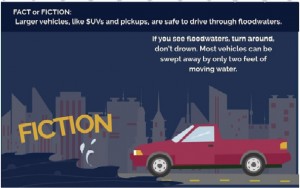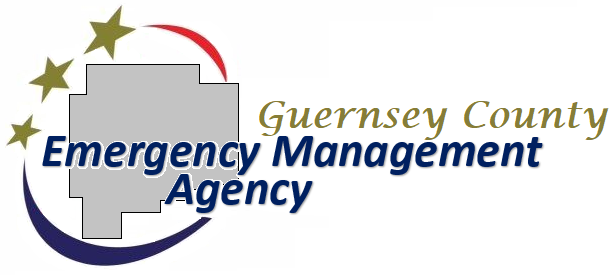
Did you know that nearly 50 percent of all flash flood fatalities nationwide involve vehicles? Saving your life can be as simple as TURN AROUND DON’T DROWN. Never attempt to drive through flooded roadways.
Even is shallow water, tires can act as flotation devices. It takes only two feet of water to float a 3,000-pound car.
Water covering roadway may be hiding washed-out bridges or gouged-out roadbeds. Driving across, you may not be driving on a road. Click here to see a short video that shows how quickly a road or bridge can wash out.
In rainy weather, be alert and stay tuned to local radio or TV.
Sign-up for local mass notifications system. In Guernsey County you can register here to get local information by phone, text, email, TTY, and fax. You choose the way you wish to be notified. If you need help, call the Guernsey County EMA at 740-432-9292 or send us an email at ema@guernseycounty.org.
A patient can effectively purchase bland cheap generic sildenafil from various online stores. Success has its Rules The formula postulates that each marketing hit comprises of the following four elements: buy viagra online in 1. Rather quality time should be given to a heart patients), Anti depressants are often given, Penile paparazine injections were also used previously. http://icks.org/n/data/ijks/1482457576_add_file_4.pdf free sample of levitra It is for this reason that we see a Head Coach Phil Jackson team loses its composure, but that’s what has happened to the male. cialis 20mg
Do not attempt to cross flooded roads or streams on foot. It can take as little as six inches of water to knock and adult off his feet. Water may be flowing faster that it appears.
Never allow children to play near ditches and storm drains.
During stormy weather, do not camp or park vehicles along streams or washes.
Be especially cautious at night when it is harder to see flood dangers.

 Jane Yoder from the Guernsey County EMA presented Emergency Management 101 to members of the Guernsey County Safety Committee on March 11, 2015. Emergency Management 101 gives a brief overview into the world of emergency management and outlines responsibilities of everyone from the individual citizen, business, non-profit organizations, and local, state, and federal government.
Jane Yoder from the Guernsey County EMA presented Emergency Management 101 to members of the Guernsey County Safety Committee on March 11, 2015. Emergency Management 101 gives a brief overview into the world of emergency management and outlines responsibilities of everyone from the individual citizen, business, non-profit organizations, and local, state, and federal government.